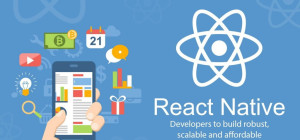Integrating blockchain in EHR systems is more than just a technical upgrade. In the context of EHR, it enhances the security and privacy of sensitive medical data. What’s more, blockchain gives patients unprecedented control over their information.
Softermii CEO Slava Vaniukov highlights that blockchain allows EHRs to be more patient-centered. He explains, “With blockchain, we can address key challenges in EHR systems. Companies can ensure data integrity and enhance interoperability between systems.”
In this article, we’ll explore the role of blockchain in EHR, discussing its benefits and potential challenges. Additionally, we’ll examine the trends expected in the coming years with these technologies.
Benefits of Blockchain in Electronic Health Records
Integrating blockchain into EHR systems can enhance data management’s security, efficiency, and reliability. The potential benefits make blockchain a promising solution for the future of healthcare. This technology may redefine how we manage and interact with electronic health records. Let’s explore some benefits that blockchain in EHR can offer:
Immutable Records
With blockchain, data records are stored across a network of computers. This feature ensures the integrity of medical records, as each entry is unchanged and time-stamped. Healthcare providers can trust the accuracy and completeness of the medical records.
Improved Interoperability
Interoperability among various healthcare systems is a significant challenge. Blockchain can act as a universal language between different EHR systems. Different organizations can access the same information by providing a standard and unchangeable ledger. This approach allows for improving coordination and continuity of care.
Patient Empowerment
With blockchain, patients can access their health records with a unique key. They can also grant permission for providers to access their data. This reinforces the security, empowering patients to be at the center of their healthcare journey.
Streamlined Processes
Blockchain can automate routine processes through smart contracts. They are self-executing contracts, and their terms are directly written into code. In healthcare, this could mean automatic updates to a patient’s health record when new data is received. Or it may be instant verification of insurance coverage, reducing administrative burden.
Challenges of Integrating Blockchain in EHRs
The integration of blockchain technology in EHR systems is a complex process. It involves navigating various technical, regulatory, and organizational hurdles. Here’s an overview of some challenges in implementing blockchain in electronic health records.
Scalability and Performance Issues
Blockchain technology can face significant scalability issues, especially when using public networks. Processing transactions and adding more records to the blockchain can cause delays and higher costs over time. Ensuring these solutions can handle the vast amount of data generated by EHR systems without compromising performance is a critical challenge.
Interoperability with Existing Systems
Healthcare systems are often a patchwork of different technologies and standards. The blockchain system must effectively communicate with existing EHR systems and other databases. It is essential for a seamless transition and operation in healthcare.
Regulatory and Compliance Issues
The healthcare industry is among the most heavily regulated sectors. There are numerous stringent laws governing patient data privacy and security. Adapting blockchain solutions to comply with regulations like HIPAA in the US, GDPR in Europe, and other laws is a complex task. Its immutable nature can conflict with laws that allow patients to have data corrected or deleted.
Cost of Implementation
Companies should be ready for significant investments in infrastructure, training, and ongoing maintenance. Determining the ROI and justifying the costs involved is another considerable challenge.
Technical Complexity and Staff Training
Blockchain in EHR requires a certain level of technical understanding. Healthcare providers and staff need training to navigate the new system effectively. Ensuring that all participants in the healthcare process are comfortable and proficient with the technology is a significant undertaking.
Future Trends of Blockchain and Electronic Health Records
The fusion of blockchain technology with EHR continues evolving towards a more transparent care system. As we look to the future, several emerging trends promise to enhance this integration further. Here’s what we can anticipate in the future of blockchain in EHR.
Widespread Adoption and Standardization
The benefits of blockchain in healthcare become more evident, and we expect its broader adoption across the industry. This will likely be accompanied by the development of standardized protocols for blockchain in healthcare. Thus, it will be easier for various systems and providers to interoperate with the technology.
Advanced Security Measures
Cybersecurity threats continue to evolve, and so do the security features. Future developments may include more sophisticated encryption methods and advanced privacy-preserving technologies. This way, ensuring that EHRs are more secure than ever before.
Enhanced Patient Empowerment and Engagement
Blockchain’s ability to give patients control over their health data will be further enhanced. Tools and applications allowing patients to manage and share their data will likely become more prevalent. It often leads to better-informed patients and more personalized healthcare.
Integration with Other Emerging Technologies
Blockchain in EHR is expected to integrate more seamlessly with AI, IoT, and big data analytics. This integration can lead to more advanced health monitoring systems and predictive analytics for patient care.
More Efficient Health Data Exchanges
The future may also see the creation of blockchain-based health information exchanges. The data can be securely transferred across different healthcare systems and stakeholders. This could greatly improve care coordination, especially for patients with multiple providers.
Global Health Initiatives
Blockchain’s ability to securely share data could be crucial in managing epidemics and public health crises. It could be used to track disease outbreaks and manage vaccine distribution. It can also maintain secure health records across borders.
Conclusion
The synergy between blockchain and EHR can address some of the key challenges in healthcare today, from enhancing data security to improving patient care and reducing costs.
The future of blockchain in EHR is dynamic and promising. The technology matures, and healthcare providers become more comfortable with its capabilities. Thus, we expect blockchain to become a standard EHR system component. The trends indicate a shift towards a more patient-centered and interconnected healthcare system.




![Top CEOs under 30-The Young Guns Of Technology [Infographic]](https://lerablog.org/wp-content/plugins/wp-thumbie/timthumb.php?src=http://lerablog.org/wp-content/uploads/2015/03/the-young-guns-of-technology.jpg&w=300&h=140&zc=1)


